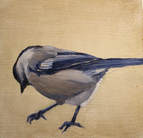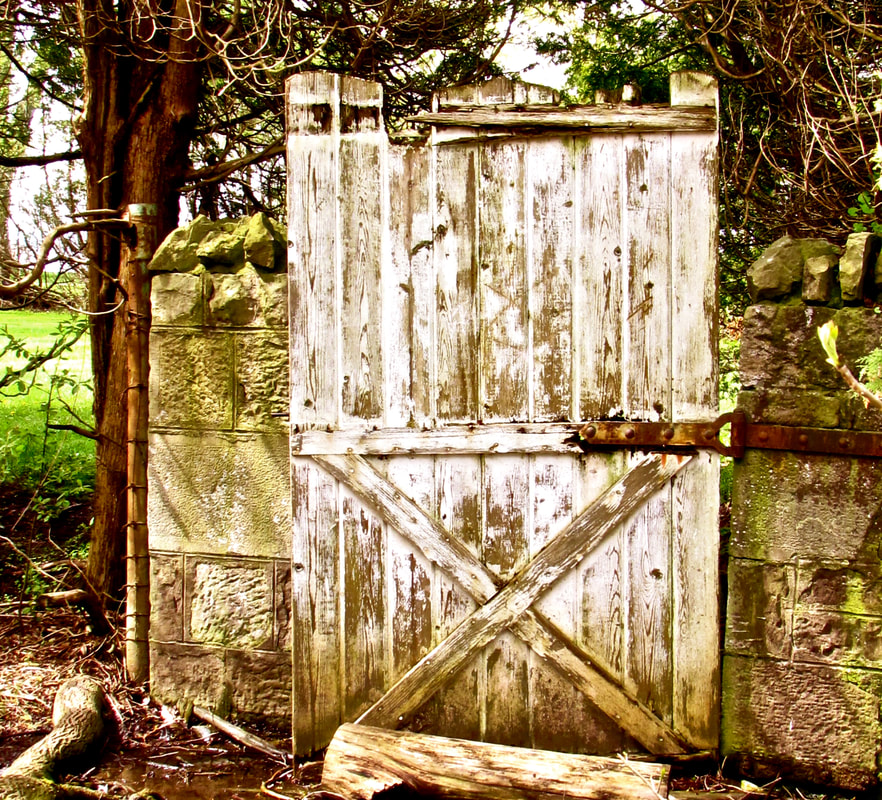 "Chickadee,dee, dee" 4 x 4 oil on palette
"Chickadee,dee, dee" 4 x 4 oil on palette This line from Yeats’ "Easter, 1916" came to mind yesterday, though not because a nationalist rebellion had been quashed. The "terrible beauty” which was born was the arrival of snow and its abrupt attendant turn from the warm tones of fall into a neutral cool palette. With the arrival of snow and overcast skies, all colour literally disappears. Only bare trees exist to punctuate the landscape. In many ways, the forest has been visually simplified, rendered serene. (I wish I could claim that driving through the Rockies in winter had the same effect. All I could think of was tons of cold rock biding its time while planning to crash down on the car.) But a December river valley seems calm and quiet to me, stripped of all visual intricacies. It does have its own beauty.
On the whole, we actually enjoy winter walking more than sweltering summer hikes. Usually we head for the conservation area, so while we start out facing the north-west winds, we get to turn around and enjoy the wind at our backs for the return trip. The only birds in sight were a flock of sparrows who filled a thick hedge with their chatter. They warm my heart, reminding me of my mother, who celebrated their winter presence . Sometimes Jon and Theodore and I pass groups of school children whose nature interpreter has given them sunflower seeds with which to attract chickadees; they stand like little statues, arm outstretched, hoping beyond hope that someone will land. I still feel thrilled and graced when the tiny claws touch down weightlessly and lift off just as quickly. Their plumage is as spare as the season -- this little gaffer was painted in white, blue and black.
Addendum: It may reassure those of you who hate winter that today’s walk was more ordeal than walking meditation. I was sufficiently inspired enough to dig some more woollen layers out of storage.

 RSS Feed
RSS Feed
